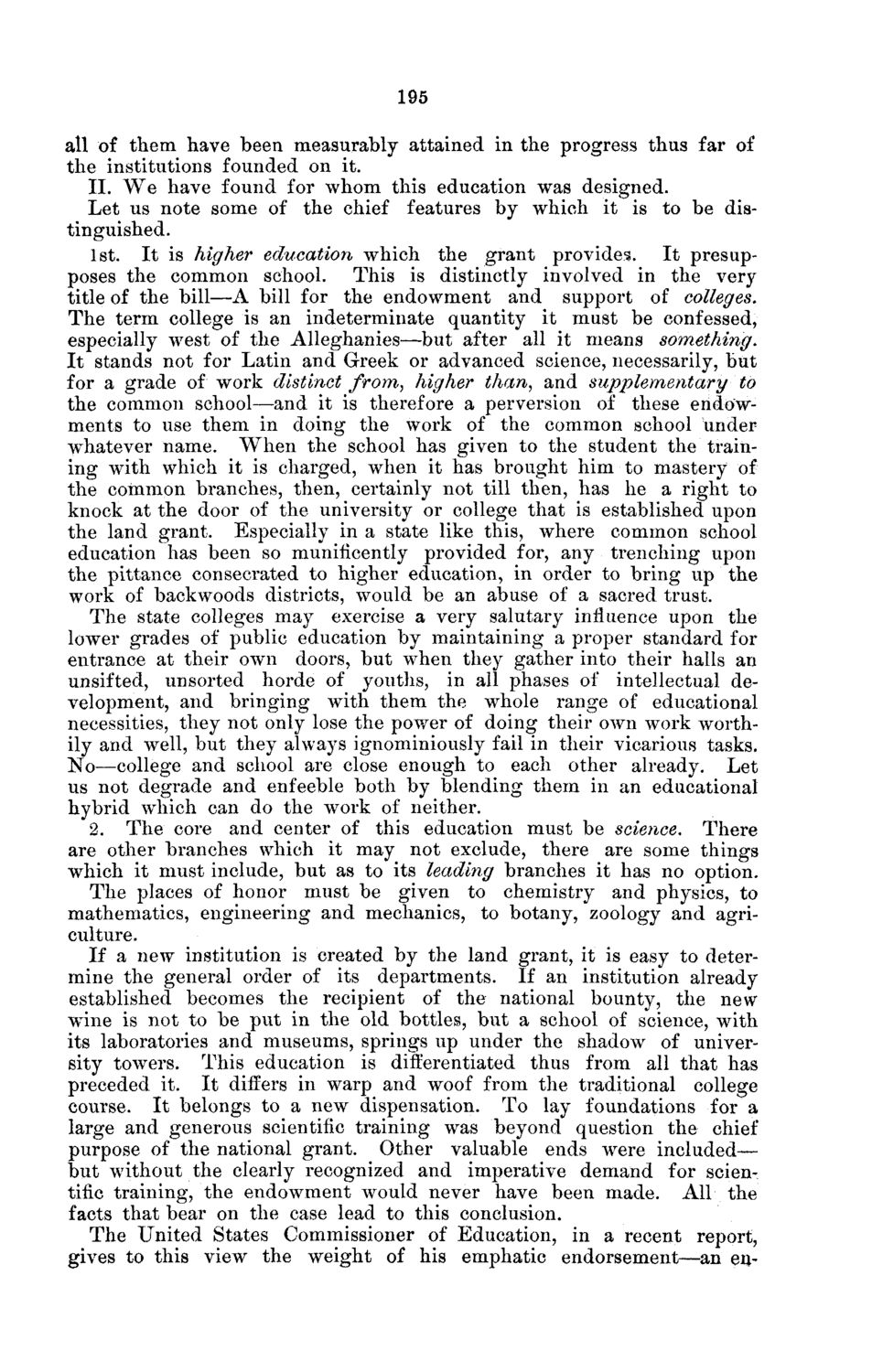| |
| |
Caption: Board of Trustees Minutes - 1878
This is a reduced-resolution page image for fast online browsing.

EXTRACTED TEXT FROM PAGE:
195 all of them have been measurably attained in the progress thus far of the institutions founded on it. I I . W e have found for whom this education was designed. Let us note some of the chief features by which it is to be distinguished. 1st. I t is higher education which the grant provides. I t presupposes the common school. This is distinctly involved in the very title of the bill—A bill for the endowment and support of colleges. The term college is an indeterminate quantity it must be confessed, especially west of the Alleghanies—but after all it means something. I t stands not for Latin and Greek or advanced science, necessarily, but for a grade of work distinct from, higher than, and supplementary to the common school—and it is therefore a perversion of these endowments to use them in doing the work of the common school underwhatever name. W h e n the school has given to the student the training with which it is charged, when it has brought him to mastery of the common branches, then, certainly not till then, has he a right to knock at the door of the university or college that is established upon the land grant. Especially in a state like this, where common school education has been so munificently provided for, any trenching upon the pittance consecrated to higher education, in order to bring up the work of backwoods districts, would be an abuse of a sacred trust. The state colleges may exercise a very salutary influence upon the lower grades of public education by maintaining a proper standard for entrance at their own doors, but when they gather into their halls an unsifted, unsorted horde of youths, in all phases of intellectual development, and bringing with them the whole range of educational necessities, they not only lose the power of doing their own work worthily and well, but they always ignominiously fail in their vicarious tasks. No—college and school are close enough to each other already. Let us not degrade and enfeeble both by blending them in an educational hybrid which can do the work of neither. 2. The core and center of this education must be science. There are other branches which it may not exclude, there are some things which it must include, but as to its leading branches it has no option. The places of honor must be given to chemistry and physics, to mathematics, engineering and mechanics, to botany, zoology and agriculture. If a new institution is created by the land grant, it is easy to determine the general order of its departments. If an institution already established becomes the recipient of the national bounty, the new wine is not to be put in the old bottles, but a school of science, with its laboratories and museums, springs up under the shadow of university towers. This education is differentiated thus from all that has preceded it. I t differs in warp and woof from the traditional college course. I t belongs to a new dispensation. To lay foundations for a large and generous scientific training was beyond question the chief purpose of the national grant. Other valuable ends were included— but without the clearly recognized and imperative demand for scientific training, the endowment would never have been made. All the facts that bear on the case lead to this conclusion. The United States Commissioner of Education, in a recent report, gives to this view the weight of his emphatic endorsement—an en-
| |